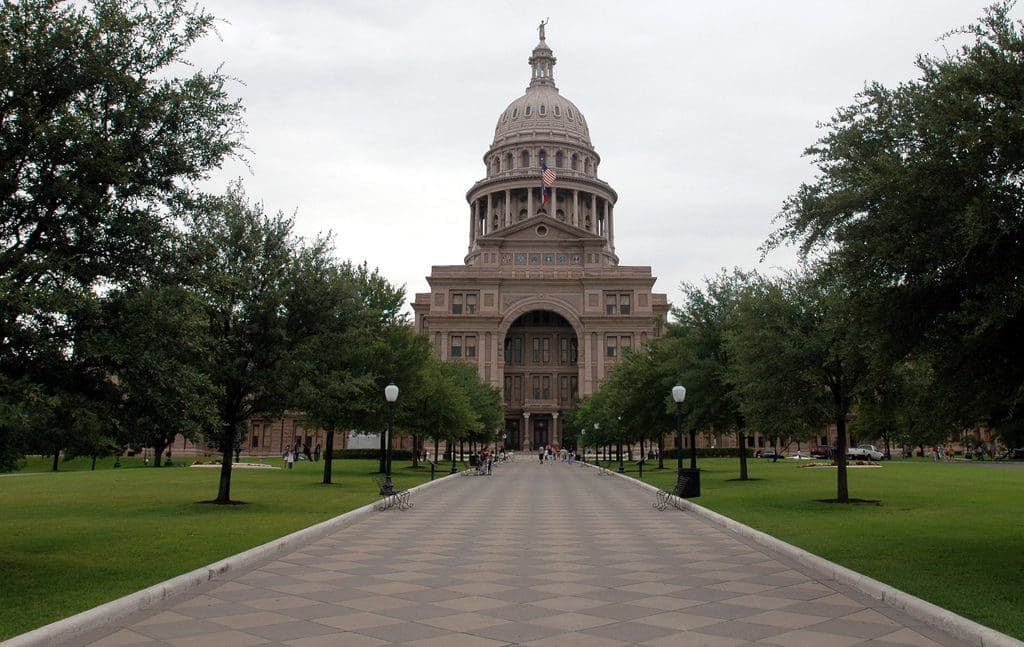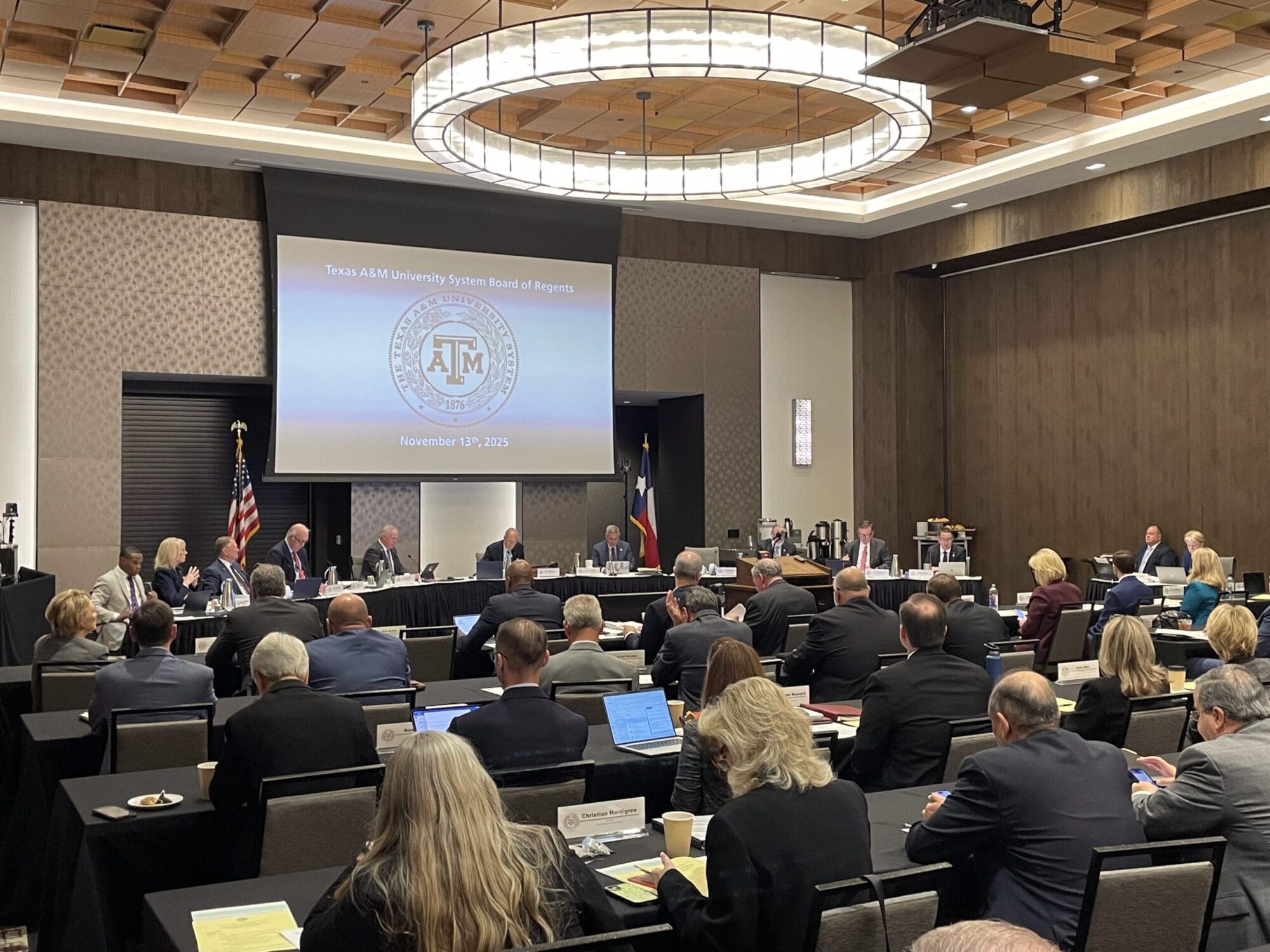The feud between Lt. Gov. Dan Patrick and Gov. Greg Abbott has a new participant; Speaker of the Texas House Dade Phelan.
On Monday, the Texas Senate did what few have ever witnessed: introducing, referring, hearing, and passing a bill on the same day. The bill requires the Public Utility Commission of Texas (PUC) to reverse its decision to raise the price of electricity to $9,000 per MWh during the Texas freeze.
Behind the whirlwind action is the conflict between Texas Gov. Greg Abbott and Lt. Gov. Dan Patrick over who should address the $16 billion (or more) electric bill imposed on Texans by the PUC through its price increase.
Though Patrick and others have urged the PUC to reverse its decision, the Senate was forced to take action because Abbott and the previous PUC Chairman Arthur D’Andrea, claimed that the PUC cannot do so on its own.
Now Phelan has joined in. He indicated that the House has no intention of passing the hurried Senate bill, claiming “the decisions made on pricing were made based on ensuring the reliability of the grid.”
The truth, however, is that the PUC can reverse its decision because it did not have the authority to hike electricity prices in the first place. And rather than improving the reliability of the grid, the decision simply put billions of dollars into the bank accounts of generators and the natural gas industry, much of which will come out of the pockets of Texas consumers.
To understand this, let us go back to the day in question.
On Monday, February 15, Texas was facing a power crisis. Blackouts had left many Texans without power for hours.
Late that afternoon, the three PUC commissioners voted to raise the price of electricity to $9,000 per megawatt-hour–forcing Texans to pay more for electricity in one week than they had for the last three years combined. As a result, electricity prices were artificially increased by as much as $30 billion over the next 3 and a half days.
At the heart of the PUC’s decision seems to be a belief in market theory over actual markets. When the decision was made as prices were trading as low as $1,200, D’Andrea stated, “I think we all expected that when we were in load shed we would be at $9,000.” In other words, the commissioners did not care what market prices actually were. They were going to impose their vision on the market, regardless.
To support its ability to take “the unusual step of abandoning the market-based pricing mechanism,” the PUC claimed “Utilities Code § 39.151(d) gives the Commission ‘complete authority’ over ERCOT,” the entity that manages the Texas grid.
However, the PUC misrepresented how much authority it has by quoting the Utilities Code out of context. In fact, § 39.151(d) only gives the PUC “complete authority to oversee and investigate the organization’s finances, budget, and operations as necessary to ensure the organization’s accountability [for its] functions and duties.”
In reality, ERCOT manages the Texas electric grid, not the PUC. The PUC has no authority to override ERCOT’s protocols in order to artificially set prices.
This is made clear when we see that the PUC’s action contradicts the Legislature’s express intent “that the public interest in competitive electric markets requires that … electric services and their prices should be determined by customer choices and the normal forces of competition.”
Furthermore, the PUC’s action “had the effect of changing ERCOT protocols, which act as agency rules, without following any procedure outlined in PURA or in the APA, and with no notice, no opportunity from market participants to comment, and no record evidence.” Finally, the PUC had previously rejected using load shedding as a trigger for raising prices.
The PUC’s renegade action should not surprise us. For much of the last decade, seemingly no regulation, no subsidy was beyond the PUC’s consideration for what once had been the most competitive and successful electricity market in the world.
One example. In 2019, without a vote, the PUC ordered ERCOT to manipulate an administrative pricing mechanism (the ORDC) to increase wholesale electricity prices–and generators’ income–by $3.6 billion.
To be fair, though, the PUC’s actions must be viewed in light of the Texas Legislature’s own actions and inaction that have placed the market in danger.
For instance, the Texas Legislature has provided $10 billion of state and local subsidies and benefits for the renewable energy industry since 2006. Almost none of the solar panels and frozen wind turbines that failed to produce electricity during the Texas freeze would have been built if not for those–and federal–subsidies.
And just last session, Rep. Jared Patterson and Sen. Kelly Hancock authored bills (HB2908 & SB2232) requiring the PUC to study the effects of renewable energy subsidies on the reliability of the grid. Both were killed by the Texas House; Hancock’s bill died in a committee then chaired by Phelan, the same man who now says he is opposed to “extraordinary government intervention into the free market.” The cost of this failure became clear when renewables took the lead in causing the recent Texas blackouts.
This brings us back to today. Though the Senate’s bill is a step in the right direction, even $16 billion is not enough. The PUC should reverse the up to $30 billion of overcharges imposed by the PUC for the entire period prices were at $9,000.
There was never a reason to increase the price–whether doing so was legal or not. The lower market prices were rational; in the depth of the storm, there simply was not any generation that could come back online no matter how high the bid price might go. The price hike did nothing to restore power to the Texas electric grid.
Rep. Chris Paddie, who succeeded Phelan in this session as chairman of House State Affairs, sought to downplay the cost of the PUC’s action to consumers. “I don’t want folks to think that what we’re debating here necessarily means that consumers benefit at all. If we move this money from one pocket to another, there is nothing that says that actually goes to the consumer.”
It is not surprising that Paddie would want to hide the massive electricity tax that he, Phelan, Abbott, and many House members want to impose on Texans. After all, this same group–and the Senate–sat by in 2019 and watched the PUC do the same thing, though on a smaller scale. It seems as if electric generators–traditional and renewable–carry more sway than voters over many politicians and regulators in Austin.
If the PUC has “complete authority” over ERCOT as it claimed only a month ago, then it certainly has the authority to reverse its previous decision and should do so. If, on the other hand, its decision was illegal, then an administrative order rescinding its decision would be sufficient.
Of course, the ultimate authority over ERCOT rests in the Texas Legislature. If Abbott and the PUC fail to act, the Legislature should reverse its years of pillaging consumers on behalf of the industry and refund the $30 billion to market participants–including Texas consumers–blindsided by the PUC’s ill-advised decision.
This is a commentary published with the author’s permission. If you wish to submit a commentary to Texas Scorecard, please submit your article to submission@texasscorecard.com.





